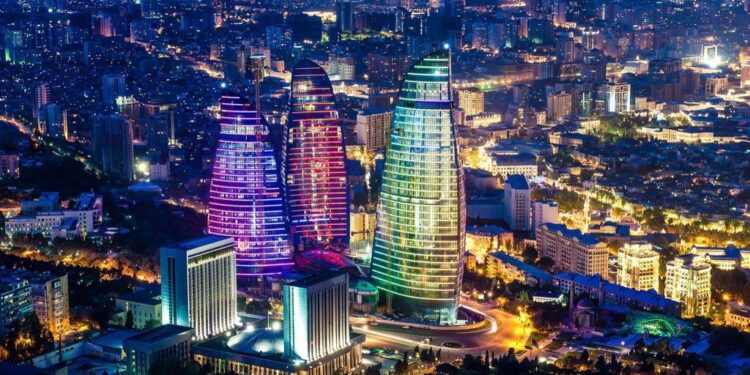Azerbaijan’s non-oil export sector has demonstrated robust growth over the first eight months of the year, signaling a promising diversification of the country’s economy beyond its traditional reliance on hydrocarbons. According to the latest data released by the State Customs Committee, non-oil exports have surged significantly, reflecting increased activity in sectors such as agriculture, chemicals, and machinery. This upward trend underscores Azerbaijan’s ongoing efforts to broaden its trade portfolio and strengthen economic resilience amid fluctuating global energy markets.
Azerbaijans Non Oil Exports See Robust Expansion Driven by Diversified Products
Azerbaijan’s non-oil export sector has demonstrated impressive resilience and growth over the past eight months, reflecting a strategic shift toward economic diversification. Key export categories showing notable expansion include agricultural products, processed foods, textiles, and chemical products. This diversification has helped the country reduce its reliance on oil revenues and tap into new global markets, particularly in Europe and Asia. The government’s supportive policies, including export incentives and improved logistics infrastructure, have played a significant role in boosting these sectors.
According to recent data, several product groups have outperformed expectations, driving the overall expansion. Below is a breakdown of the leading non-oil export segments contributing to this positive trend:
- Agricultural produce: Fruits, nuts, and vegetables have increased by 18% year-on-year.
- Textile and garments: Exhibiting a 22% rise thanks to strengthened production chains.
- Chemical products: Including fertilizers and detergents, up 15%.
- Processed foods: Expanding by 20%, supported by growing demand in neighboring regions.
| Product Category | Growth Rate (%) | Key Export Destinations |
|---|---|---|
| Agriculture | 18% | Russia, EU |
| Textiles | 22% | Turkey, Central Asia |
| Chemicals | 15% | Georgia, Iran |
| Processed Foods | 20% | Middle East, Europe |
Key Sectors Fueling Growth Include Agriculture Textiles and Food Processing
Azerbaijan’s export landscape has witnessed remarkable diversification, with agriculture, textiles, and food processing sectors emerging as pivotal contributors to the nation’s economic expansion. The agriculture sector, bolstered by sustainable farming practices and innovation, has significantly increased the output of high-demand crops such as pomegranates, grapes, and nuts. Meanwhile, textile manufacturers have tapped into both traditional craftsmanship and modern techniques, elevating the country’s position in regional and global markets with a growing portfolio of yarns, fabrics, and finished garments.
Food processing industries are capitalizing on Azerbaijan’s rich agricultural produce, transforming raw materials into value-added products tailored for export. This not only enhances export revenues but also creates employment opportunities and stimulates rural economies. The synergy among these sectors is highlighted in the following table, demonstrating their contribution to non-oil export growth over the past eight months:
| Sector | Export Growth (%) | Key Products |
|---|---|---|
| Agriculture | 18.5 | Pomegranates, Nuts, Grapes |
| Textiles | 14.2 | Fabrics, Yarn, Garments |
| Food Processing | 21.3 | Juices, Preserved Fruits, Dairy |
Experts Recommend Enhanced Infrastructure and Trade Partnerships to Sustain Momentum
Leading economists and trade specialists highlight the urgent need to upgrade Azerbaijan’s infrastructure to maintain the impressive growth in non-oil exports. Investments in transportation networks, logistics hubs, and customs efficiency are identified as critical factors that will streamline export processes and reduce delivery times. Experts emphasize that modernizing railways, expanding highway capacity, and enhancing port facilities will not only boost domestic productivity but also make Azerbaijani goods more competitive on the global stage.
In parallel, strengthening bilateral and multilateral trade partnerships remains paramount. Authorities are urged to pursue new free trade agreements and deepen existing alliances to unlock broader market access. Key recommendations include:
- Establishing strategic trade corridors with neighboring and regional partners
- Facilitating knowledge exchange on customs procedures and regulatory standards
- Encouraging public-private collaborations to foster export-oriented industries
| Area | Recommended Action | Expected Impact |
|---|---|---|
| Transport | Upgrade highways and rail links | Faster goods transit |
| Trade Agreements | Negotiate new free trade deals | Expanded market access |
| Customs | Streamline clearance procedures | Reduced delays and costs |
In Conclusion
As Azerbaijan’s non-oil export sector continues to demonstrate robust growth over the past eight months, the nation’s efforts to diversify its economy appear to be gaining significant traction. With increased investments, expanding trade partnerships, and government support initiatives, the sector is poised to play a crucial role in shaping Azerbaijan’s economic future. Analysts and stakeholders will be closely monitoring these developments as the country seeks to reduce its reliance on oil revenues and build a more resilient, sustainable economy.





![Azerbaijan reaffirms support for Somalia’s sovereignty at OIC emergency meeting [PHOTOS] – AzerNews](https://europ.info/wp-content/uploads/2026/01/3037165-azerbaijan-reaffirms-support-for-somalias-sovereignty-at-oic-emergency-meeting-photos-azernews-350x250.jpg)










